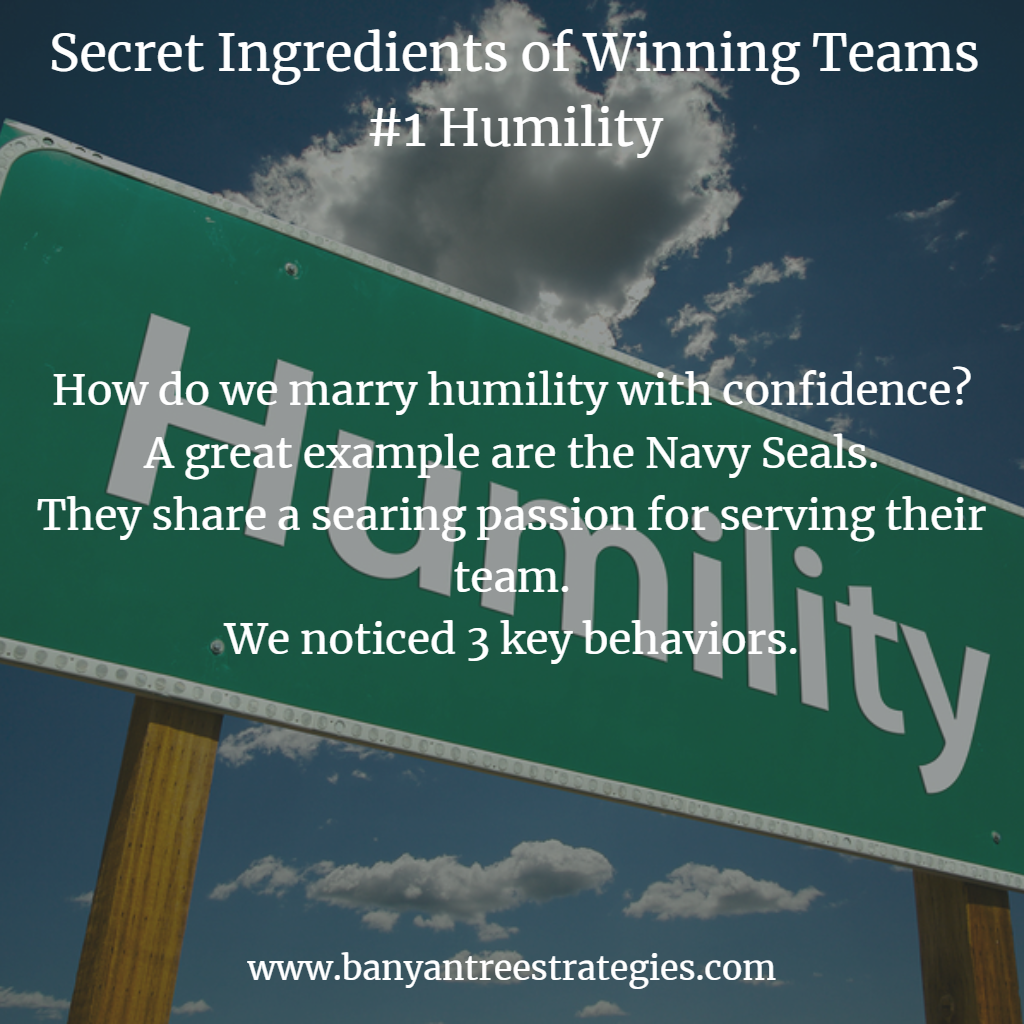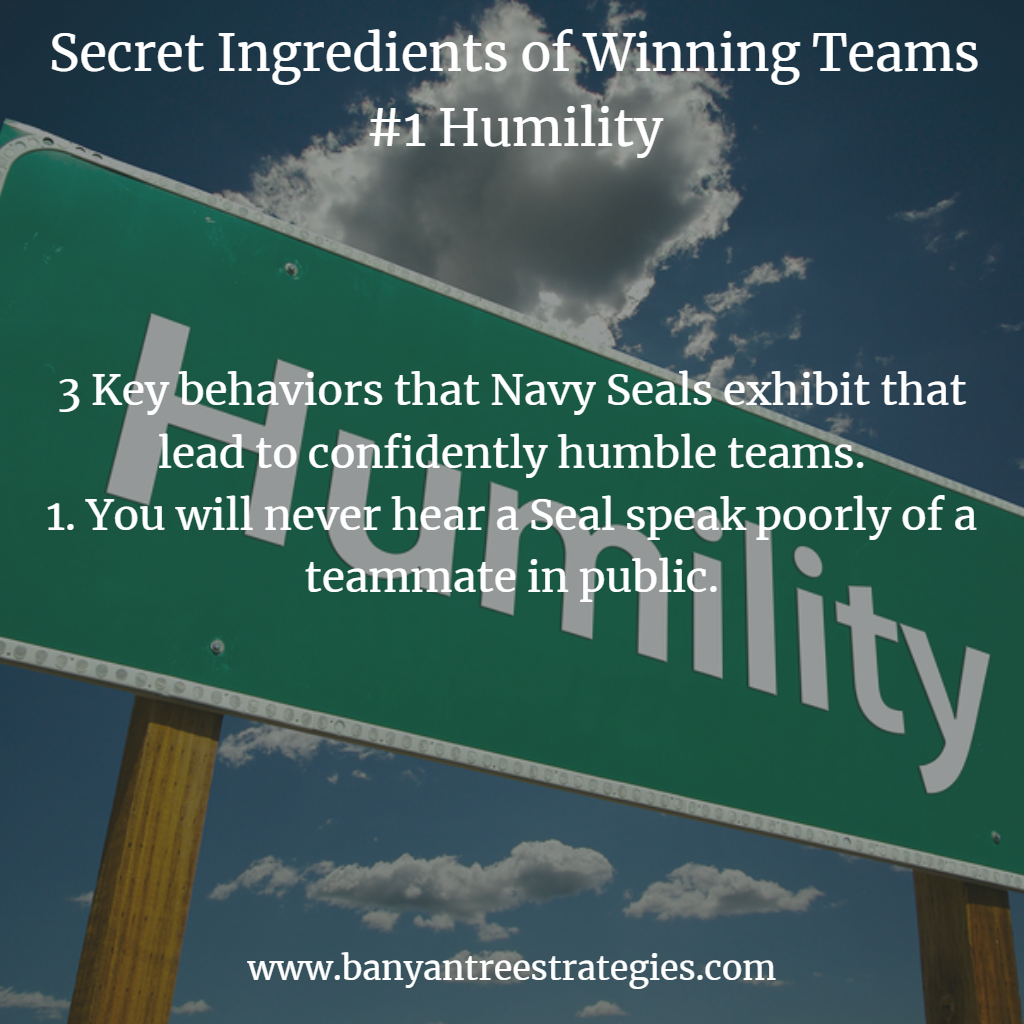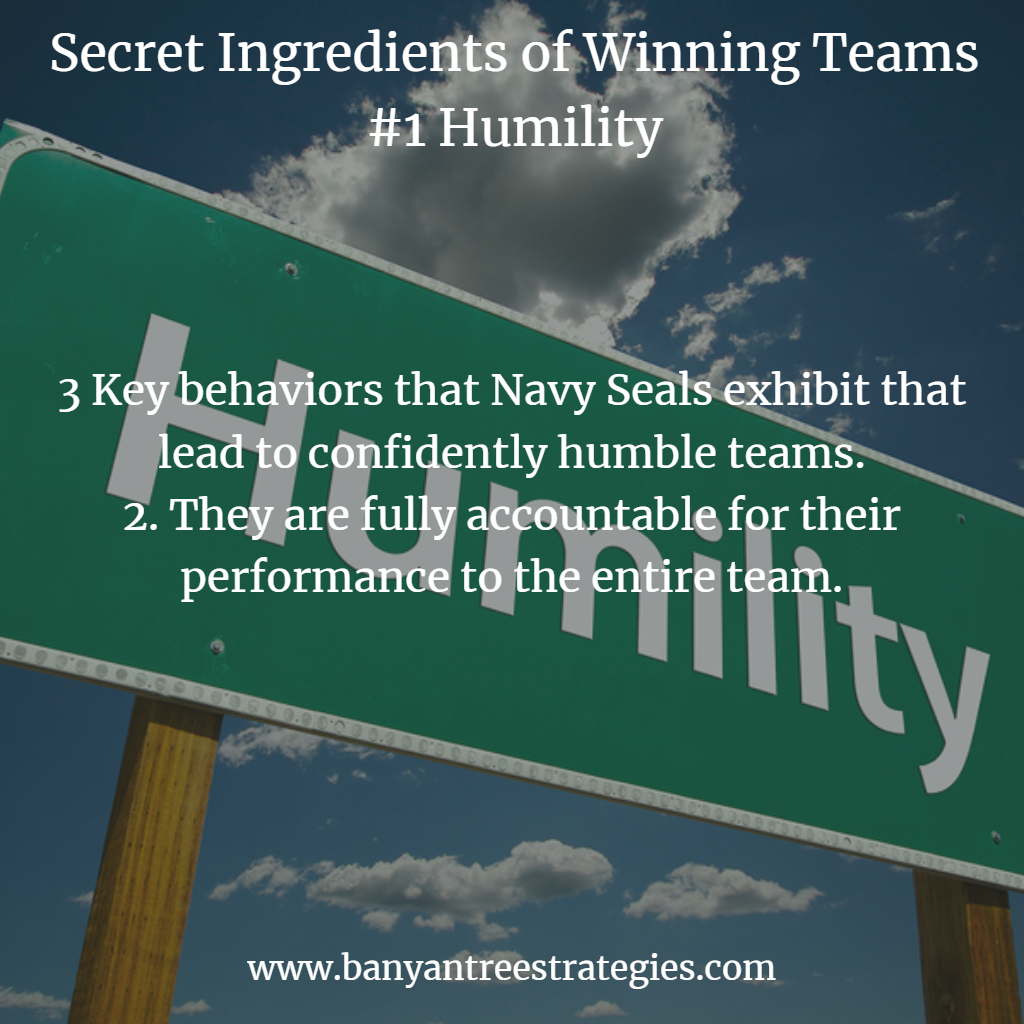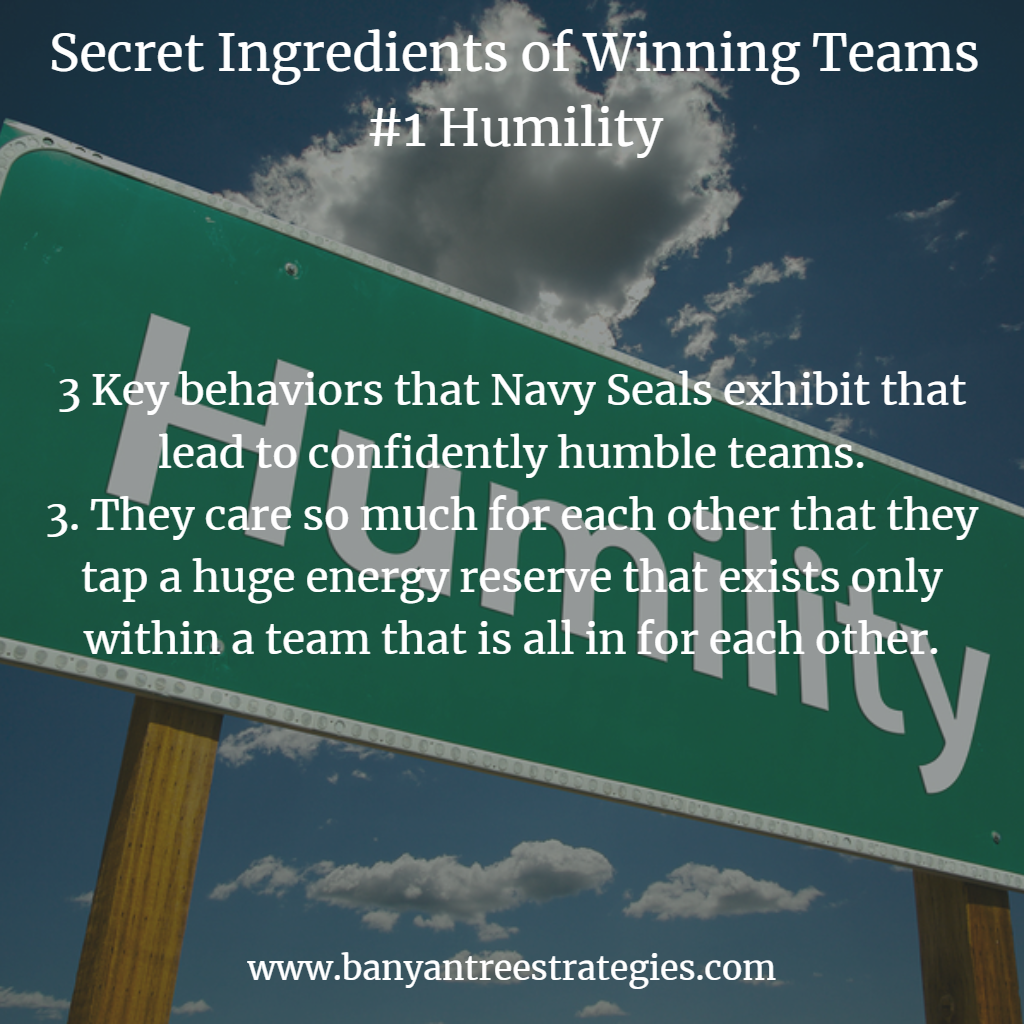Secret Ingredients of Winning Teams #1 - Humility
|
|
|
One interesting series the team at Banyan has been committed to writing about is what we consider the secret ingredients of winning teams. A recent Wall Street Journal article caught our eye and started us down the path of contemplating what makes a humble leader, and how it works in sport and life.
What on earth does humility have to do with business, sport leadership, and team success? Depending on your bent either nothing, or everything. Webster’s Dictionary tells us that humility is the quality, or state of not thinking you are better than other people. Others have described humility as not thinking less of yourself, but of thinking of yourself less often. Regardless, in a performance-driven world being confident and humble at the same time appears to be a paradox. Our attempts to solve this riddle have led us to seek out the humblest of confident groups, the U.S. Navy Seals. The men who have earned the right to say they served as a Seal are an accomplished and confident group, yet as you get to know them the dominant trait they share is a searing passion for humbly serving their team. It appears the Seals have figured out how to have a high performing team full of confident people, who are all willing to risk everything to support the team’s mission. The correlation to other team environments is worth a closer look. How do they do it, what is their process, and can you duplicate it with your team? To start, let’s take the miles of running in the sand, the racing and beaching of small boats in high waves, and the sleep deprivation out of the equation. Most of us are just looking to get our work or sports team to come together and be a caring unit, so that we can optimize our chances for success in a highly competitive world. So, what is it that we can mirror and learn from the Seals? We have noticed three key behaviors all tied back to their humble spirits. First, you will never hear them speak poorly of another member of their team. This may not seem like a big deal but bagging on a teammate is a classic trait seen in teams that are average performers. They haven’t taken the leap to care enough about each other, and they just might be over their skis, or not have a clear picture of what winning looks like. When you witness this behavior, make a note of it, and then at a private moment share with the offending party how cancerous this is to the team’s health. Another big leap the Seals take is being fully accountable to the team for the review of their performance. If the unit does not feel they did their best, then they did not do their best. The giving up of one’s personal performance review is a huge leap for most people, and as a leader it is hard to see where your team is on this metric. Yet this mindset is the beginning of a powerful seed called trust. As you see people grimace and squirm when they are reviewed by their peers, you are witnessing them “leak” physically as they mentally struggle with this issue. As the leader, make sure your direct reports are aware of how challenging this step can be for some people. Hammering an offender will not lead to trust, it takes curiosity and some tact to get people to take this step. The final trait tied to humility we have witnessed with the Seals is that they have found the deepest human energy reserve that is known to exist, a fanatical commitment to serving the team. When it comes to energy, we all have some interesting emotions to tap for our internal fuel. Hate and anger are powerful fuels, however, they are akin to sugars that burn hot and fast. The challenge is that sugars do not sustain you and have toxic exhausts that make you hard to be around. Joy and happiness work extremely well for creating contagious energy yet are too ephemeral to last and sustain. They are like pixie dust. The long-term protein of internal fuels for humans is the service of others who you are committed to help. When a person is tapping the emotion of helping those they are committed to, they have fuel for days. The Seal's team commitment level is life or death. For us, the stakes are often far less serious, yet getting everyone on the same page about the level of commitment to the team is important. Most groups of people you are involved with have different pictures of success. Many are defining their success individually and have vastly different levels of commitment. As a teammate, team captain, or coach of the unit, you might consider the power of implementing some Navy Seal humility. How have you seen humility help build a winning team culture? Vertical Divider
|






